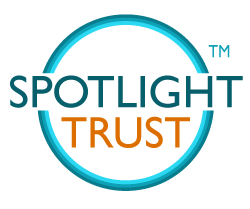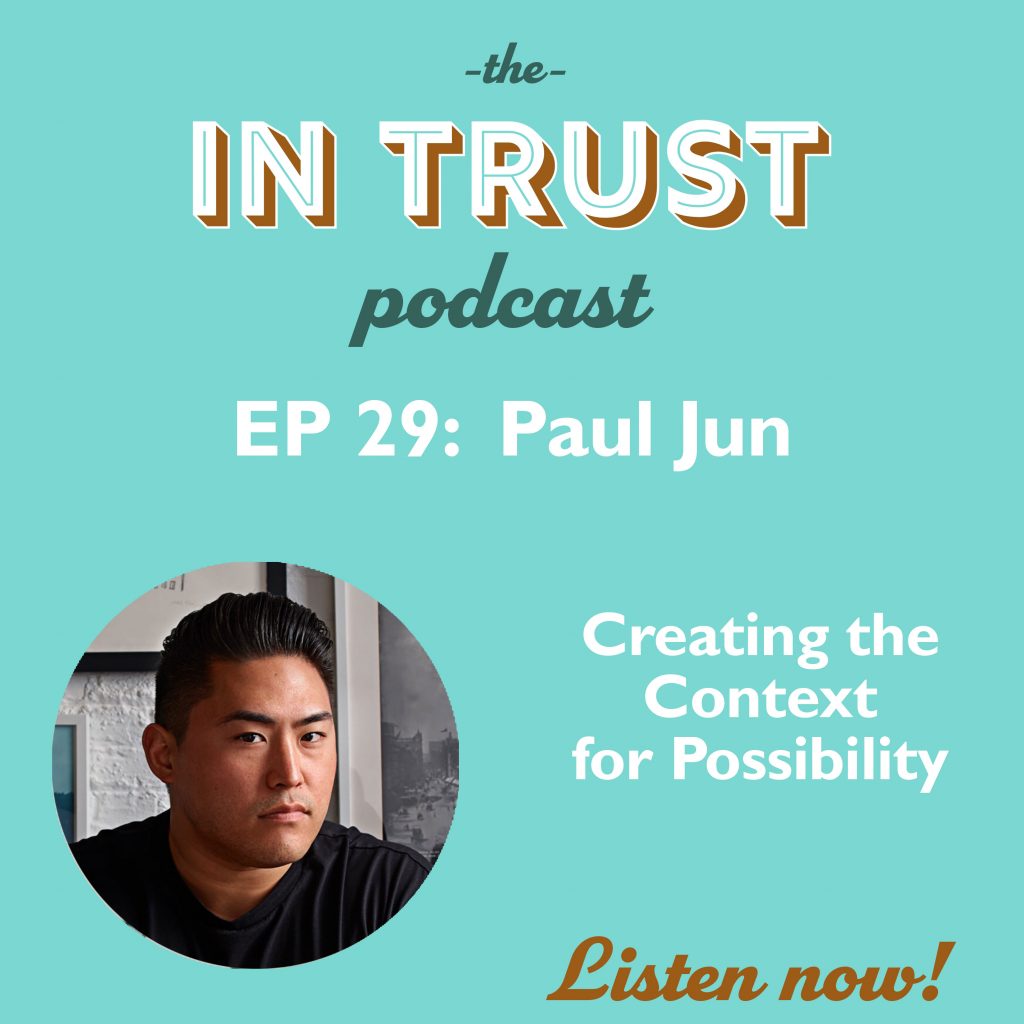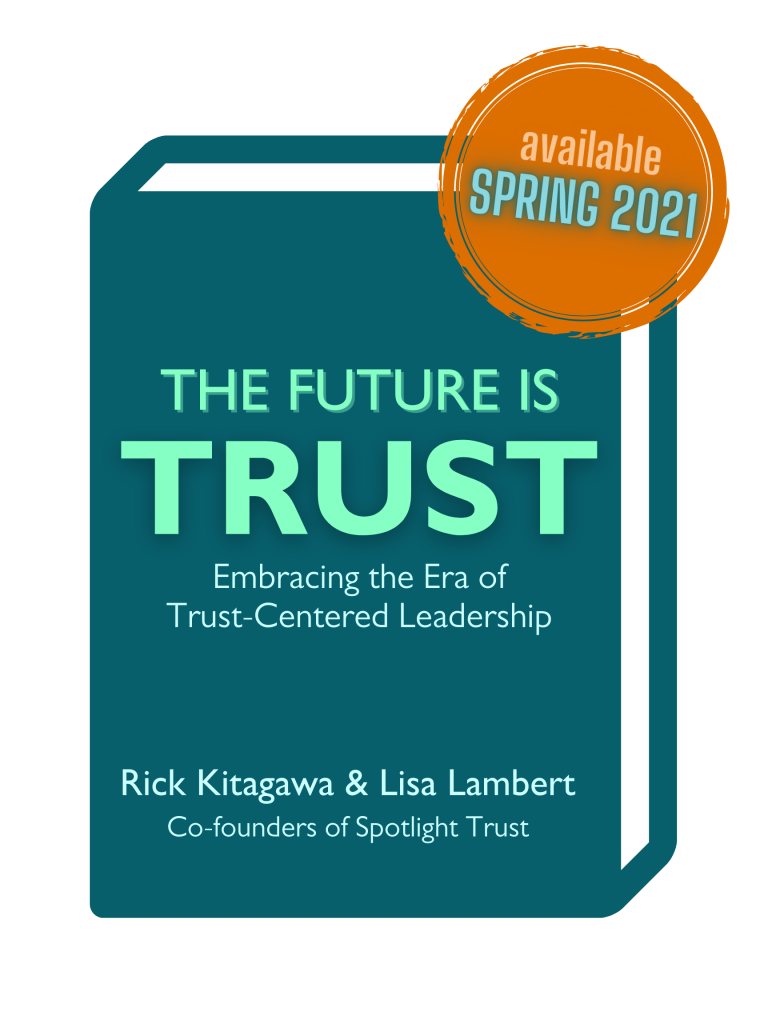How do you build a meaningful brand that’s relevant and resonates with your customers when you’re swimming in an ocean of content? How can you leverage storytelling and community to build the trust needed to design the future with your team and your customers?
These questions have been at the heart of Paul Jun’s work as he’s gone about transforming brands and their relationship with those they seek to serve.
Paul works with mission-driven leaders and brands that believe in storytelling and design to build community. He’s currently the Editorial Director at COLLINS, a globally-renowned strategy and brand experience design company that’s won recognition from every major creative award.
We had the pleasure of chatting with Paul and exploring why he believes the future of brands is in owning their own platform and their content. Paul generously shared with us his behind-the-scenes perspective on how he thinks about brand building in addition to practical insights on harnessing the power of storytelling and community to build the trust needed to navigate transformation and make new things possible.
If you’re interested in building a brand and creating relationships with those you seek to serve that stand the test of time, then you won’t want to miss this episode of the In Trust podcast.
Overview of Episode 29: Creating the Context for Possibility with Paul Jun
Talking Points
- Paul’s craft of uncovering language that helps bring clarity and inspiration needed to move teams and organizations forward
- How Paul weaves together writing, storytelling, photography, design, strategy, and community-building
- The value in being multidimensional and being intentional in choose where to give you attention and energy in defining your career
- The difference between art and content
- Paul describes the content trap and the importance of context, especially when we’re overwhelmed with content
- What’s required to make great content (hint: it’s not easy)
- Why language matters, especially when it comes to successful collaboration
- The problem in how design agencies traditionally tell client stories and a behind-the-scenes look into the change in storytelling Paul has been leading at COLLINS set clients up to design their future
- How Paul went about building trust with is team, working with them not for them
- How Paul’s work to build trust with his team led to enrollment, which led to earning the trust of senior leadership and budget
- COLLINS view that design is not what we make, but that design is what we make possible
- Why Paul believes every brand should “grown their own garden” and the long-game opportunity for brands to enroll their customers in change and strengthen brand trust
- The principles that have helped Paul overcome imposter syndrome and build trust in himself
- The generous support that can come from asking for feedback and reaching out to people you don’t know who inspire you
Quotables
“Language matters. Language is perception. And perception is simply the story that we tell ourselves.” – Paul Jun
“Language is so elemental to who we are as people, and it’s incredibly hard.” – Paul Jun
“The better that you can connect those dots, the more valuable your skillset because you’re not just looking at something through your craft. You’re able to navigate between different crafts and disciplines and connect insights that otherwise wouldn’t belong together.” – Paul Jun
“Photography is an act of paying attention.” – Paul Jun
“There is incredible opportunity to do the kind of introspection on why you choose to give your attention and energy to different disciplines and how they’re feeding each other. And really, what is it for? Not everything that you learn or do has to become a career.” – Paul Jun
“How do we start a conversation that is on the opposite edge of this very fast-paced kind of world? How do we slow down? How do we appreciate the masters that came before us? How do we really learn to observe?” – Paul Jun
“If you’re someone who has multiple disciplines, I think the best way to figure out how to sort of bake it into your identity and into your practice is to put something out in the world that combines all of those disciplines together, and you just have to try. – Paul Jun
“A skill worth learning is connecting those dots, putting a project out in the world, learning from that, and then deciding whether or not that’s something you want to continue to do.” – Paul Jun
“Content is a shortcut of a word to describe the things that we see, on the internet. I think the failure is that we have now conflated genuine pieces of art as content, and I think that relationship is extremely parasitic. I think it’s untrue. And I think it devalues the nature of art and artists. Content is a word based on the advertising model of the internet.” – Paul Jun
“Don’t call my work content. What I produce is not to sell ads. It’s not for clickbait. It’s not for some ephemeral emotion or connection. I am producing things that hopefully stand the test of time, that are aimed to be practical and generous and allow the reader to gain insights that they otherwise wouldn’t get with typical content.” – Paul Jun
“I’m basically trying to show the audience that there are a lot of things that had to happen in order for this shiny thing to happen. I want to bring readers behind the curtains and go, ‘yes, you admire this, this rebrand or this publication or this campaign, but know that there’s a lot of things that happened behind the scenes—like soft skills, and emotional intelligence, and trust, and collaboration and being able to have really difficult conversations with really smart people that have different tastes.’ Oftentimes, we don’t see that when we see this final finished product, and we judge it, and we criticize it, and then we go on about our lives.” – Paul Jun
“There’s this very strange shift happening right now where there’s a lot of focus on what people are calling the Creator Economy or Passion Economy. But at the fundamental heart of it are principles that I think a lot of artists have been using since the beginning of time, which is simply to master your craft, build a body of work, ship projects, and build an audience around your work. And really, at the heart of that is trust and connection.” – Paul Jun
“Context is very important because we are overwhelmed with content. We’re overwhelmed with just scrolling past things and looking at it on the surface level and not really digging into why this piece of work is actually meaningful? Or how is it actually changing my mind? Or how is it instilling new thoughts or insights into my craft. Context is about making meaning of the work.” – Paul Jun
“Creating great content requires specificity. It requires a point of view. It requires great writing, framing, and packaging to build trust. None of that is easy. Absolutely none of that is easy.” – Paul Jun sharing insights from a friend of his
“That is a work of art because you’re putting your soul into it and it might not work.” – Paul Jun
“Language matters. If that person that you’re collaborating with doesn’t have the same sort of passion or understanding of the word ‘content;, then that is already a mismatch in the collaboration. And then that might lead to not great work.” – Paul Jun
“My mindset was that it’s important that I build with the company, not for the company. That I am not here to build you a publication; I’m here to build with you to build this publication, and that the trust of every single team member and everyone in that room was important. If half the leaders didn’t trust me, this project would have never happened, no matter how much I try to bulldoze or try to take things in my own control.” – Paul Jun
“Brands are realizing that they need to own their garden. They need to build their garden, they need to earn trust with their customers and their audience, and they need to keep giving them stories that amplify that brand loyalty that they have. This is essentially all for the long game.” – Paul Jun
Show Notes
This episode sponsored by:
The Future Is Trust
Embracing the Era of Trust-Centered Leadership
There’s a lot of uncertainty about the future, but one thing we are sure about is that The Future Is Trust. Which also happens to be the title of our forthcoming book.
The Future is Trust: Embracing the Era of Trust-Centered Leadership will be available in Spring 2021.
We are so excited to bring this reimagination of what a leadership book can be.
Check out thefutureistrust.com for book launch details, special previews, exclusive pre-order specials, and more.







